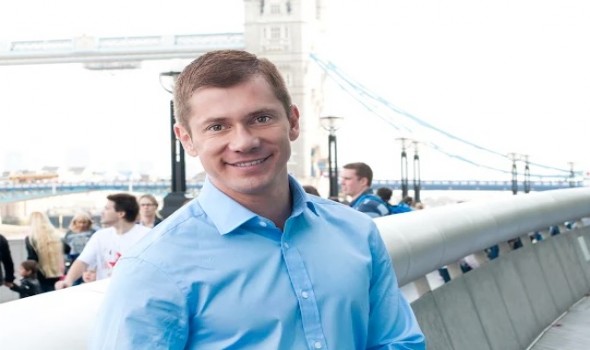Rafael’s story
Rafael’s story

Rafael dos Santos took a step down when he moved to Britain.
“I had a really good life in Brazil,” he recalls: he worked for Microsoft, which paid half his university fees, and had his own flat.
But he wanted to learn English, so in 2001 he came here: “I didn’t speak English well, no-one would give me a job, so I had to start washing dishes. I worked as a kitchen porter.”
It was tough, difficult and lonely, he says, but he was determined to make the best of it: “After about three months it was ok, and after about six months it was good, and after about two years it was fantastic.
“London is unique. Few cities are as cosmopolitan and friendly as London. If you go clubbing in London, people are so friendly. It’s more difficult to make friends with British people but the friendship is deeper …. It’s harder for you to get under the skin, but once you do, it’s for life. British people are very deep when it comes to friendship, marriage and values. These people rule the world, so there must be something solid.”
He’s worked hard, too, starting a business from scratch and watching it grow to a turnover of £1.5 million with 15 members of staff.
It started with a company managing and letting rooms in flat shares, which was followed up by a book, ‘Moving Abroad – One Step at a Time‘; a start-up, Room in the Moon, a social network connecting people who are moving or planning to live abroad; and now workshops all over the world.
His latest – and proudest – venture is This Foreigner Can, an enterprise that seeks to “teach migrants that the UK is fantastic for you to launch a business … The government gives you lots of tools, there are lots of free events and places where you can learn.
“This could be applied to anyone. I never thought I could get into business. I only got into business in the UK because no one would give me a proper job. Migrants are twice as likely to launch a business as British people not because we are entrepreneurial but because we do not have the same opportunities.
“People think that they are not entrepreneurial,” he says, “but anyone can do it. You just have to find what you’re good at, what you like doing and then you’re going to do really well. Obviously it takes time. You have to make mistakes that you can learn from. That is how it works.”
He likes the way the enterprise combines helping people with improving people’s lives: “it gives people confidence, helps them to speak better and makes them feel better about themselves, teaching them that they can improve, they can learn, they can achieve more and that the barriers are all in their minds.
“I am not a politician, but I am a great believer that we have to help the economy somehow, and if these small businesses grow tomorrow, in three or five years, they’re going to be generating more jobs.”
The next targets of the man who arrived with £500 in his pocket are to develop his businesses and earn an MBE or a CBE: “I want to be recognised as someone who has really helped the British economy and migrants”.
Dos Santos has also notched up two big achievements on the personal front: getting married and buying a home.
The latter was easier, though he describes it as a typically British obsession in comparison with Latin countries where “you live with your parents until either you get married or your parents are dead”.
Romance was harder: “It’s difficult to find love here in London, it’s difficult to find love being gay and it’s difficult to find love being a foreigner.”
Despite difficulties, however, overall “migration is great for a number of reasons. One is to teach the world. If I go and live abroad and come back I will probably teach the ones around me that life is not black and white or is not always a certain way. For me, you should migrate if it is going to make you happier. Migration balances the mentalities of people.”
How does he feel about negative media stories about immigrants?
“The problem with the media is that they like to sensational stories. I doubt that any migrant, at least the ones I know in my network, would leave their countries and their families to come and sit on the sofa, get paid £50 a week and get rent free. When migrants move, they have drive and determination.”
“I think what is missing is journalism that covers how good migrants can be. I also think what is missing is showing how many jobs migrants are creating. A lot of people in this country are migrants and contribute to society and we need to show more of this. But for the journalist and the newspapers, these stories do not sell. Who cares if a migrant is making £10million in revenue and providing 100 jobs? This is too good for them. They want migrants jumping out of lorries!”
Any advice for would-be migrants to the UK?
“Take a look at my book,” he says – ever the businessman – “because it tells you all the steps you’re going to meet when you move.
“Secondly, I would say Do your research to learn and understand the culture, not just about practical things like the weather, the money and the area, but on how to make friends with English people, see how people behave, how they speak, how they think.
“Number three is, integrate. Learn by doing. Integration is important.”
More information:


